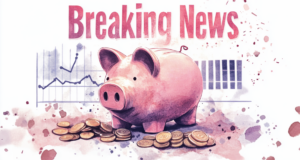Former Chinese Official Advocates Review of Crypto Regulations

On September 28, during the 2024 Tsinghua PBC Chief Economist Forum in Beijing, Zhu Guangyao, former Vice Minister of Finance, urged Chinese authorities to reconsider their approach to cryptocurrencies, warning that the U.S. could take the lead in this sector.
On this page
On September 28, during the 2024 Tsinghua PBC Chief Economist Forum in Beijing, Zhu Guangyao, former Vice Minister of Finance, urged Chinese authorities to reconsider their approach to cryptocurrencies, warning that the U.S. could take the lead in this sector.
Guangyao also predicted rapid advancements in AI this year, stating that the world is either already in the Fourth Industrial Revolution or on the verge of entering it.
He pointed to the evolving stance of the U.S. on the crypto industry, highlighting several significant changes:
- Cryptocurrencies being featured in the Republican Party's election platform;
- Approval of Bitcoin and Ethereum ETFs;
- A shift in overall industry direction compared to previous years.
Guangyao stressed the need to remain aware of the risks associated with the crypto industry while emphasizing that China cannot afford to fall behind in the face of global changes.
“[…] we also need to study the latest international changes and policy adjustments because they are crucial for the development of the digital economy,” said Zhu Guangyao.
His comments align with earlier statements by Tron blockchain founder Justin Sun, who, in July, called on China to become more involved in the industry, particularly after Trump’s positive remarks about cryptocurrencies.
Sun believes that competition between China and the U.S. over cryptocurrency regulation could ultimately benefit the industry.
It remains to be seen whether Guangyao’s speech will influence China’s approach to the cryptocurrency sector.
Although China has strict bans on crypto mining and trading, there is growing speculation that these measures may be lifted in Q4 2024.
The content on The Coinomist is for informational purposes only and should not be interpreted as financial advice. While we strive to provide accurate and up-to-date information, we do not guarantee the accuracy, completeness, or reliability of any content. Neither we accept liability for any errors or omissions in the information provided or for any financial losses incurred as a result of relying on this information. Actions based on this content are at your own risk. Always do your own research and consult a professional. See our Terms, Privacy Policy, and Disclaimers for more details.


























